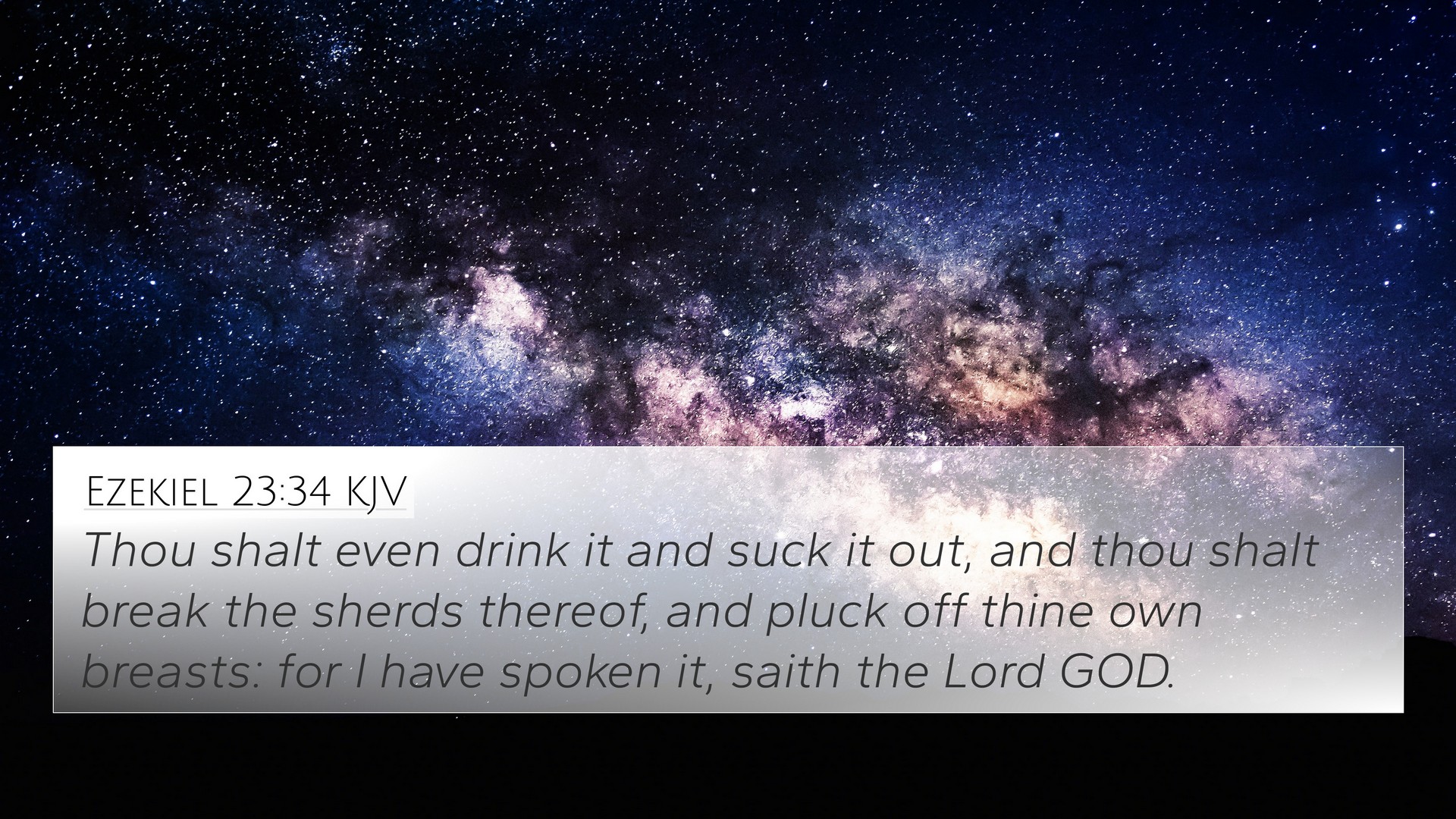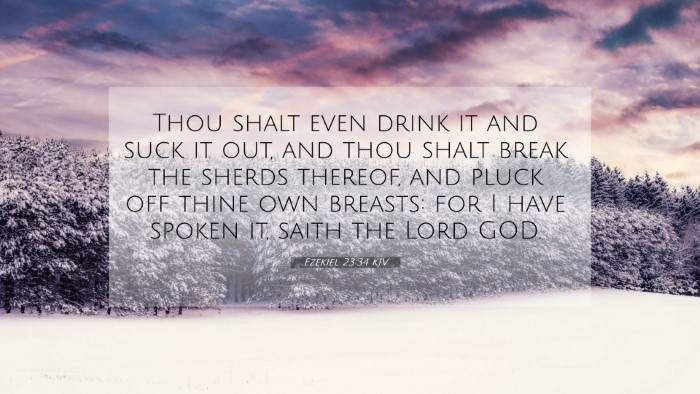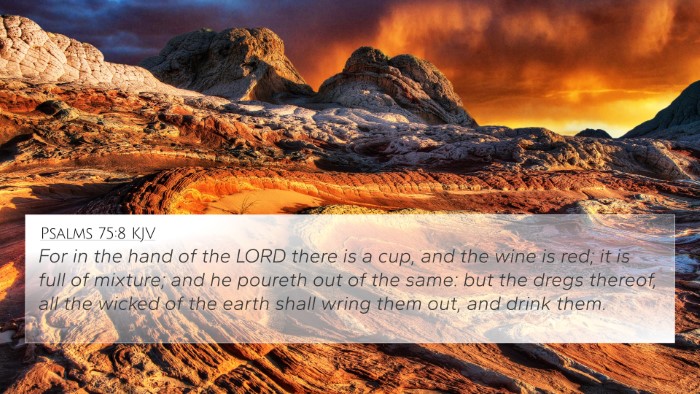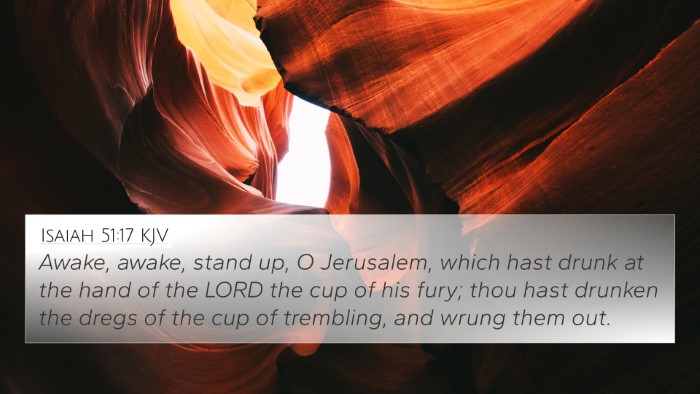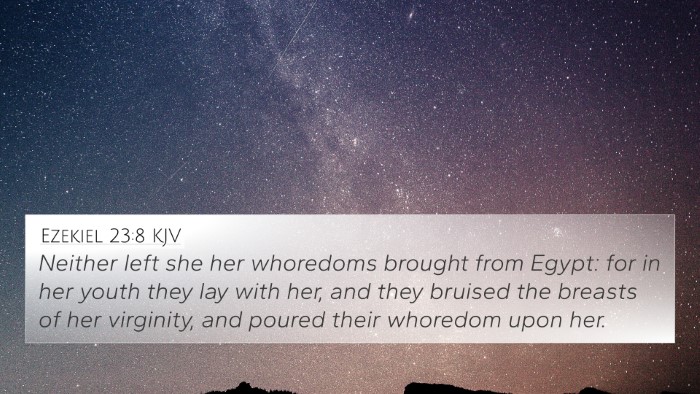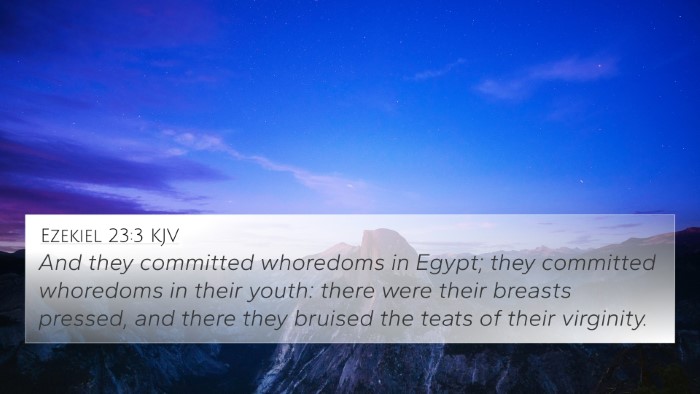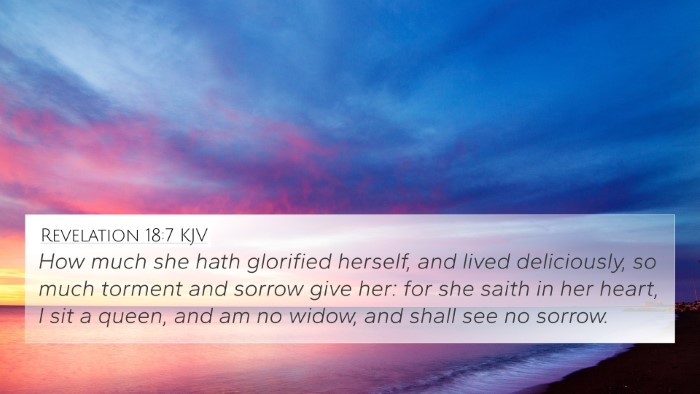Ezekiel 23:34 - Interpretation and Meaning
Ezekiel 23:34 refers to the judgment upon the two symbolic sisters, Oholah and Oholibah, representing Samaria and Jerusalem, respectively. This verse serves as a stark reminder of the spiritual unfaithfulness and idolatry that led to their impending doom.
Exegesis and Commentary
This verse falls within a larger context in the book of Ezekiel, where the prophet uses vivid imagery to depict the moral degradation of the people of Israel. Ezekiel 23:34 captures the punishment that will be meted out due to their infidelity, signifying both their rejection of God and the consequences of their actions.
Summary of Insights from Commentaries
- Matthew Henry: He emphasizes that the judgment reflects God's righteousness, highlighting the gravity of turning away from Him. Henry notes that the metaphor of a harlot is used to illustrate the lewdness of their spiritual affairs with idol gods.
- Albert Barnes: Barnes interprets the verse as illustrating the severe repercussions of Israel's wickedness. He points out that the punishment is not merely punitive but serves as a call to repentance, underscoring God’s desire for His people to return to faithfulness.
- Adam Clarke: Clarke provides an analysis of the actions leading to this judgment, observing that it reflects Israel's willingness to engage in practices that led to their separation from God. He connects this back to the covenant relationship that had been violated.
Cross-References for Deeper Study
For those investigating the connections within scripture, several cross-references illuminate themes found in Ezekiel 23:34:
- Jeremiah 3:6-10: This passage addresses Israel's infidelity and God's grievance against her.
- Ezekiel 16:35-43: A detailed portrayal of Jerusalem’s unfaithfulness is echoed here.
- Isaiah 23:17-18: Discusses the consequences of the harlotry metaphor, similar to Ezekiel’s message.
- Hosea 4:10-12: Highlights the spiritual harlotry of Israel and the resulting emptiness.
- Revelation 17:1-2: Connects the theme of spiritual adultery and judgment in apocalyptic literature.
- Proverbs 2:16-19: Warns against the seductions of wayward women, paralleling the metaphor of unfaithfulness.
- James 4:4: Describes enmity against God being akin to spiritual adultery.
- 1 Corinthians 10:6-11: Warns the church against the mistakes of Israel as examples of consequence.
- Zephaniah 3:1-5: Reflects on the stubbornness of Jerusalem and God’s eventual strong response.
- Ezekiel 22:2-4: Discusses the great abominations committed in the city, leading to judgment.
Thematic Connections
The themes of judgment, idolatry, and divine faithfulness sit at the heart of Ezekiel 23:34, creating connections across the entirety of the biblical narrative:
- Moral Corruption: The Bible frequently references moral decay and its spiritual ramifications, making Ezekiel’s warning timely across generations.
- God’s Justice: The thread of divine justice serves as both a warning and a source of encouragement for believers today.
- Call to Repentance: Many verses highlight the need for return to God amid warnings, encouraging believers to live faithfully.
Using Tools for Bible Cross-Referencing
For those looking to explore these connections further, various tools and resources can guide your study:
- Bible Concordance: Useful for finding specific terms and their occurrences throughout scripture.
- Bible Cross-Reference Guide: Provides systematic connections for deeper understanding.
- Cross-Reference Bible Study: Engaging with scripture through a thematic lens enhances comprehension and insight.
- Comprehensive Bible Cross-Reference Materials: These can enrich your studies and provide valuable insights into thematic links across both Testaments.
Conclusion
Ezekiel 23:34 serves as both a warning and an invitation to reflect on the seriousness of spiritual fidelity. The interconnectedness of scripture through cross-referencing not only deepens comprehension but also reveals God's relentless call to His people. Understanding these verses in relation to one another fosters deeper theological insights and personal applications in faith.
